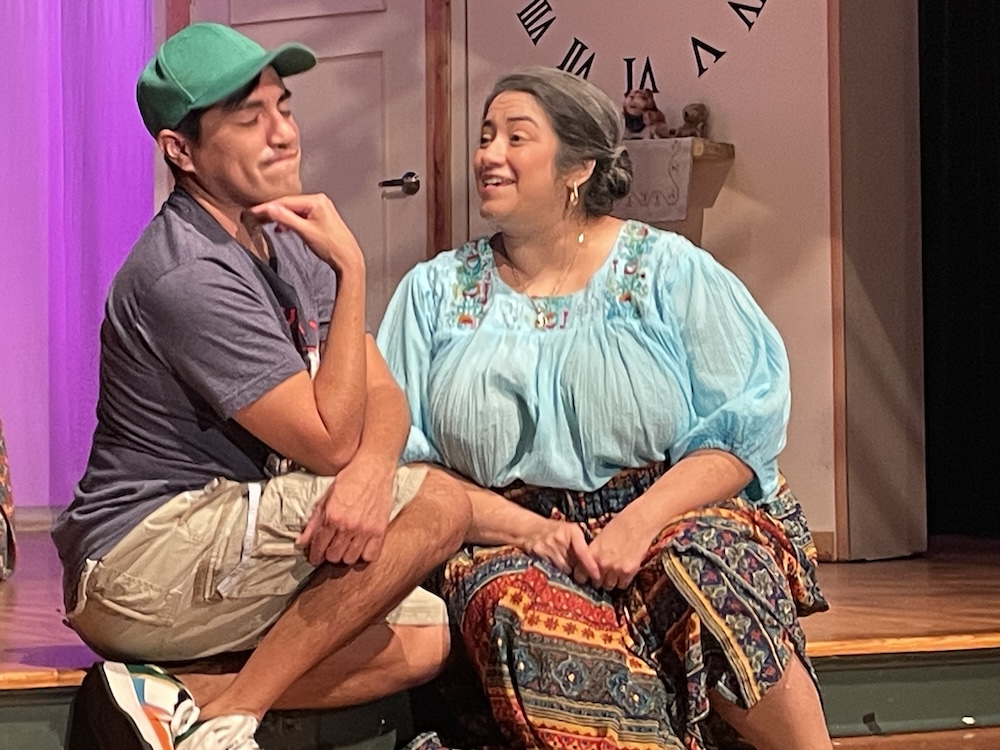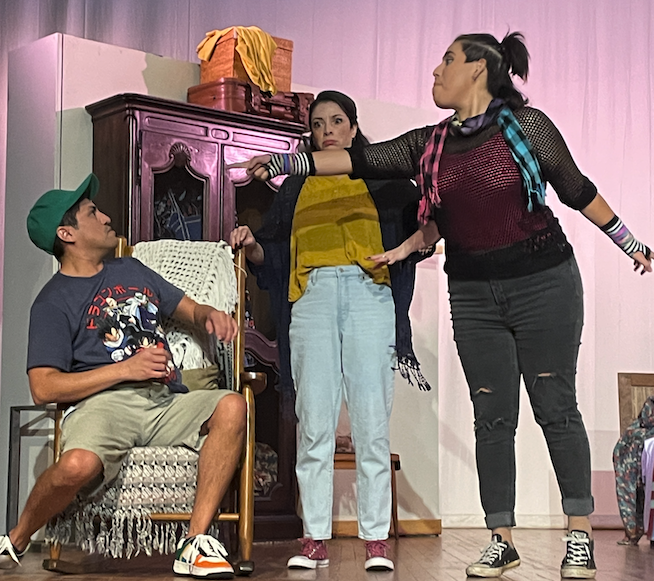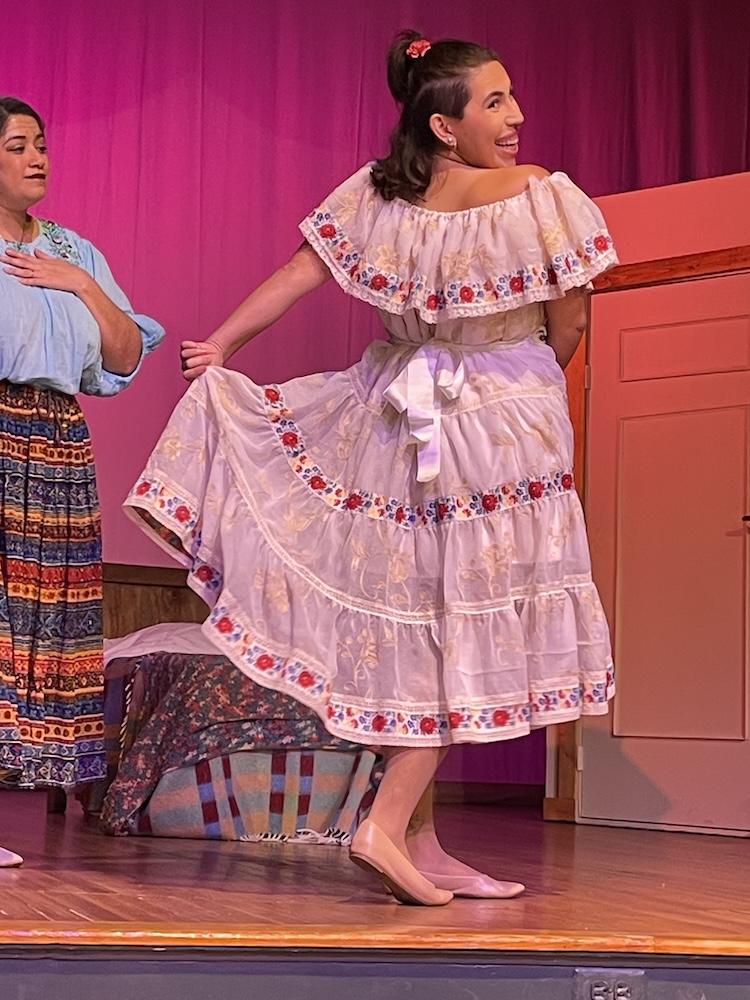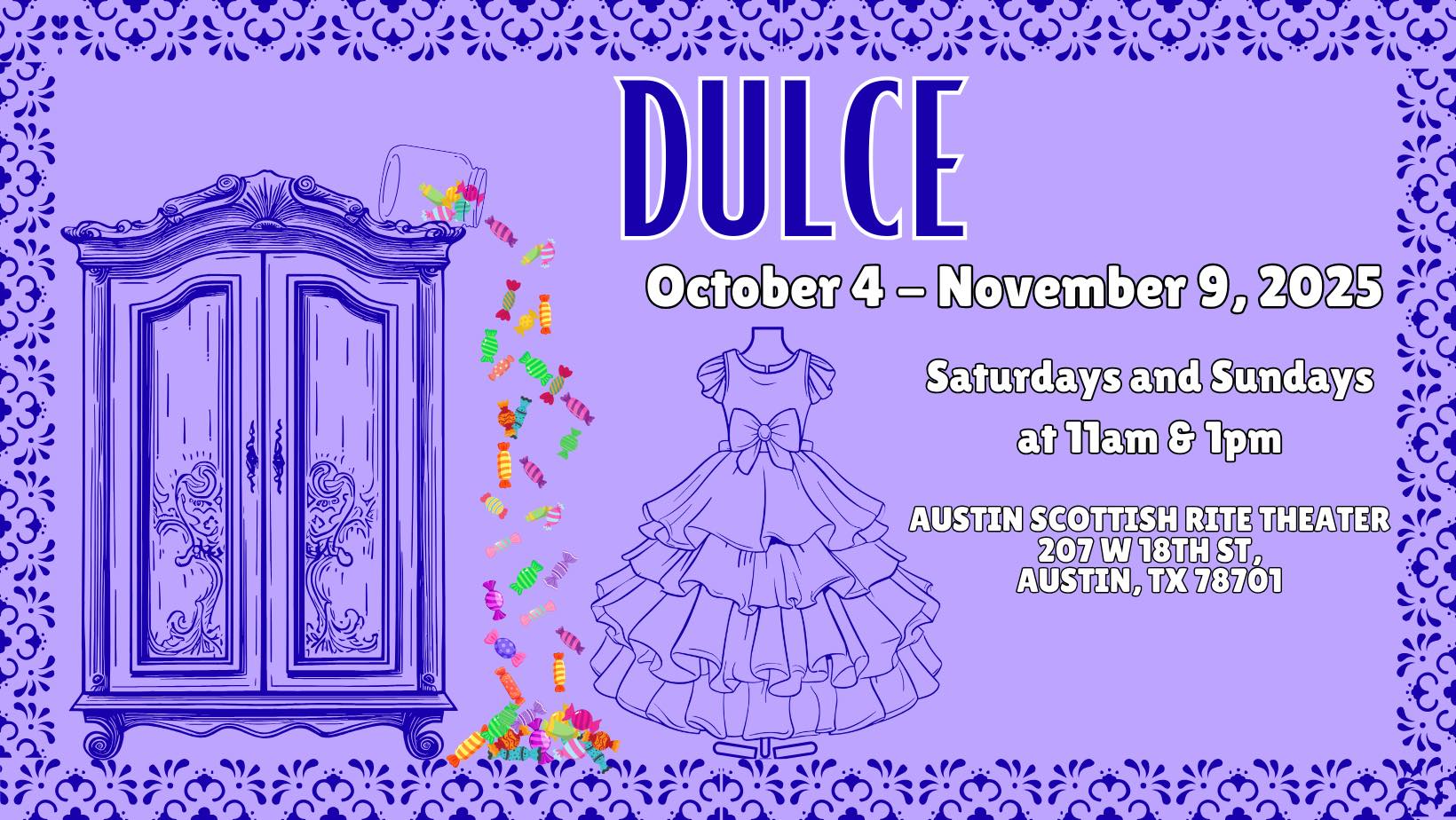Review: Dulce by Ramón Esquivel, Scottish Rite Theater, Austin
by Michael Meigs
 Ramón Esquivel's Dulce speaks of loss, memory, growing up and death. It's no Halloween show; it's far gentler than that.
Ramón Esquivel's Dulce speaks of loss, memory, growing up and death. It's no Halloween show; it's far gentler than that.
Esquivel uses a young boy's frustrations and dreams to construct a picture of a struggling but brave immigrant family. A single mom has just lost her own mother and must also deal with two boisterous children who don't entirely understand what has happened—either the disappearance of their grandmother or the hardships their elders overcame to estabish this new life in Seattle, the only town the kids have ever known.
Young Memo, played by AJ Reyes, returns from a two-week visit to cousins in El Paso and discovers that Abuelita has disappeared. She's gone, passed away and buried while he was far away. His mother Luisa chose not to tell him when it happened. Now big sister Ceci (Cecelia Sánchez) is getting ready to take her abuelita's room, because Ceci has been sleeping on the sofa for years. Bewildered and angry, Memo searches the room for Abuelita's cache of candies, forbidden delights that she would sometimes slip to him in secret.
Death creates an absence. But, as Abuelita tells Memo, "These Americans don't understand death."

Yes, to Memo's astonishment and delight, there she is, real as . . . life. To Memo, at least. she's a benvolent apparition in traditional garb that only he can see or talk to.
 Abuelita watches, amused, as Memo and Ceci bicker. Memo is determined to get that box of sweets that his mom Luisa has placed out of his reach, high on the wardrobe.
Abuelita watches, amused, as Memo and Ceci bicker. Memo is determined to get that box of sweets that his mom Luisa has placed out of his reach, high on the wardrobe.
That's symbolic. Don't we all wish we'd taken the opportunity to hear life tales of those who are no longer with us? When alone with Memo, Abuelita shows him her own memories and tells the family's story. The tradition of the quinceañera is central to her story. For her fifteenth birthday, Abuelita was given a beautiful dress and a party; her daughter Luisa, living friendless in the foreign United States, refused that Mexican tradition. And now that same dress is found amongst the few things left behind.
The story is lightly told with lots of affection and whimsy. Sibling rivalries, taunts, and tantrums will be recognized by any child in the audience. Bianka Nicole Torres as the boundlessly loving and optimistic grandmother is the grandparent any kid would love to have. Abuelita has some magic about her, too; she'd never in her life learned to speak English but now she's flawless in that language and is planning to learn several more. She reassures Memo that death is transition, not a cause for lasting grief or resentment.
Sandwiched between those generations, Karina Domínguez gives Luisa, Memo's mom, both depth and emotion. Luisa is the grown-up in more ways than one, having held the family together since the death of her father. Her story, gradually revealed, is emblematic, even symbolic, of that of so many immigrant families. Domínguez makes it personal and individual as well, for Luisa is the character playwright Esquivel permits to show a range of emotions. A single mother is always stressed and often hassled; and when the hidden quinceañera dress is discovered, Karina Domínguez shows in her demeanor, her timing, and her voice how deeply Luisa is moved. She gives the dress—that lost opportunity—to her daughter.

Dulce is a sweet tale that plays effectively for all its audience members, whatever their ages. You come away from the performance feeling that you know this family, and you know that they'll endure.
EXTRA
Click HERE to view the SRT program for Dulce
Dulce
by Ramon Esquivel
Scottish Rite Theater
October 04 - November 09, 2025
